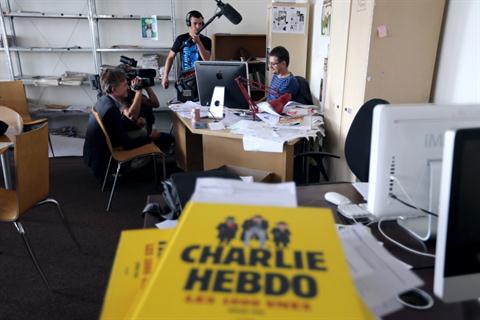MENUFIYA/BEHEIRA: The Muslim Brotherhood’s political arm was leading the vote count on Friday in the Delta governorates of Beheira and Menufiya.
In Menufiya, the Freedom and Justice Party had 45-50 percent of the party lists vote, according to preliminary results. Al-Wafd was in second place in Menufiya with 20-25 percent of the vote, while the Salafi Al-Nour Party followed in Beheira with 37 percent.
In Beheira, preliminary results of the count showed a 58-percent lead for the FJP, while Al-Wafd was third on the party lists vote with 25 percent.
Menufiya is known to be a stronghold for leading members of the now-disbanded National Democratic Party. In the fourth constituency, once reserved for NDP leading member and steel tycoon Ahmed Ezz, FJP and Al-Wafd candidates were heading towards run-offs. Ibrahim Haggag of the FJP and Ibrahim Kamel of Al-Wafd are contesting the individual professional seat.
In the first constituency, Al-Nour’s Aymen Abdel Monsef was leading the count in the race for the individual professional seat.
Abdel Monsef, also coordinator of the party in the governorate, said that Islamists are winning seats in the parliament due to the services they provided and their strong connection with the masses.
He stressed that the economy is a major element of the party’s program, in addition to activating the Article 2 of the 1971 constitution which states that Islam is the religion of the state and that Islamic Sharia is the source of legislation.
The FJP in the party lists vote in this governorate meant that its prominent member Ashraf Badr had secured a place in parliament. Mohamed Kamel, running on top of Al-Wafd’s list, has also secured a seat in parliament. For years, Kamel ran unsuccessfully against NDP leader and head of the majority in parliament, the late Kamal El-Shazly.
In Beheira, the FJP’s Gamal Heshmat, famous for losing to NDP’s Mostafa El-Fiqi in 2005 in what judges labeled a rigged vote, secured a seat in parliament. He heads the FJP’s party list.
Voting in two party list constituencies in both governorates were postponed to the run-offs.
Voting turnout in the two governorates was moderately low as voters cast their ballots on the second day of the second round of parliamentary elections.
Campaigning outside polling stations continued as members of the FJP, Al-Nour, the Egyptian Citizen Party, and some supporters of independent candidates used laptops to guide voters to their polling stations.
Army forces prevented campaigning in front of polling stations in Menufiya.
Beheira witnessed some clashes when a low-ranking police officer attempted to force voters to choose a certain candidate, which prompted voters to clash with him and later filed a complaint against him as he escaped.
One of the supporters of candidate Sabry El-Mesare’ on the list of the Conservatives Party, an offshoot of the NDP, attempted to shoot live ammo at supporters of Al-Nour because of campaigning in front of polling station, but the army intervened.
Monitor of Al-Shehab Center for Human Rights Ayman Abdel Ghany said he was beaten and his camera was taken away by members of Al-Nour Party.
El-Shehab Center also documented an attack by supporters of Mohammed Shaalan of the Egyptian Citizen Party against military soldiers when prevented from campaigning in front of a polling station.
Minor scuffles between Al-Nour campaigners and soldiers led to briefly detaining a group of them, but they were released later.
The rights group said that the second day in general was calm as the practice of vote buying disappeared and no strict measures were taken against campaigning in front of polling stations.
In Menufiya, many polling stations opened late on the second day, while others witnessed lack of organization as scuffles broke out.
Abdel Monsef said scuffles between supporters of his party and the FJP’s are due to enthusiasm on part of the younger members.
Supporters of the Reform and Development Party, an offshoot of the NDP founded by Mohamed Esmat El-Sadat, used the photo of late president Anwar Sadat in their banners, which voters considered an attempt to influence them by abusing Sadat’s legacy.
Judge Eid Bayoumy supervising the elections said that most of the voters, whether educated or illiterate, didn’t know who to vote for and were not informed of the voting process.
He said that some voters gave him a piece of paper scribbled with the name and number of the candidates they wish to vote for.

